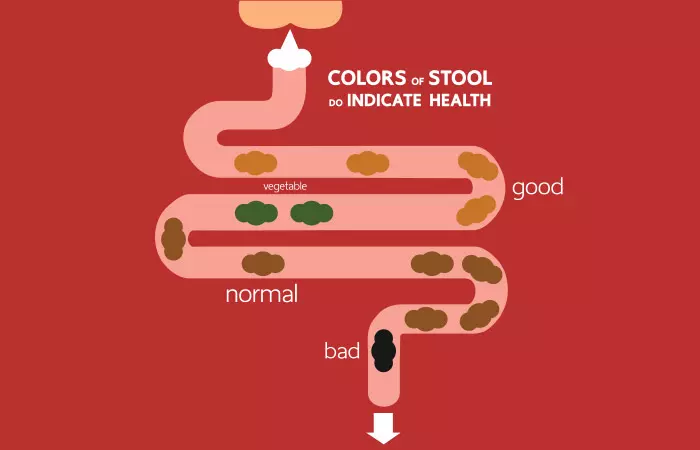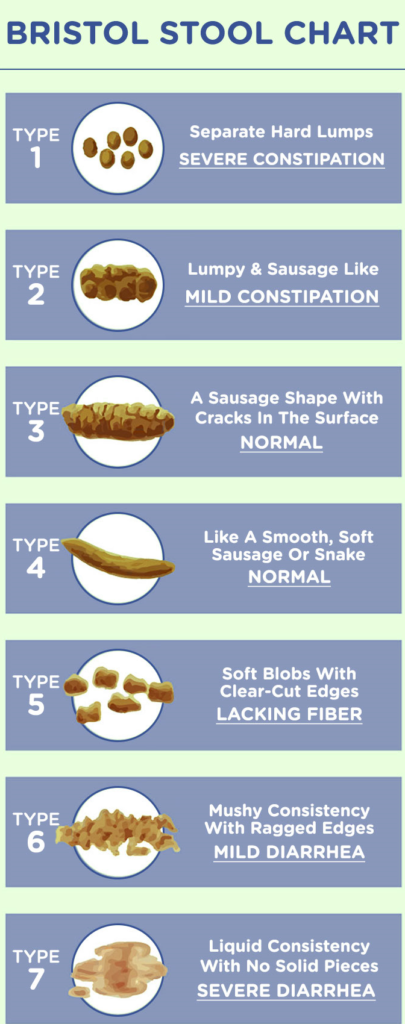It might sound odd at first, but your bowel movements are more than just a routine part of daily life—they are a critical indicator of your overall health. From the color and consistency to the frequency and odor, every aspect of your poop can offer vital insights into your digestive system, nutritional habits, and even warn you of potential health issues. In this comprehensive guide, we delve into the fascinating world of digestive health, explain what your poop might be trying to tell you, and share actionable tips to optimize your well-being.
Understanding the Basics: What Your Poop Reveals About Your Gut Health
Your gut is often called your “second brain” because of its enormous influence on overall well-being. The characteristics of your poop—its color, texture, and smell—can provide a snapshot of how your digestive system is functioning. Key insights include:
Color:
Normal poop varies from shades of brown due to bile pigments. Sudden changes, such as black, red, or pale stools, might signal underlying issues. For instance, black stools can indicate bleeding in the upper gastrointestinal (GI) tract, while red may suggest bleeding in the lower GI tract.
For more information on what different colors mean, check out articles from Mayo Clinic.
Consistency and Shape:
Ideal stool consistency is neither too hard nor too loose. The Bristol Stool Chart is a useful tool for categorizing stool types and understanding digestive function. A healthy digestive tract generally produces stools that resemble a smooth, soft sausage or snake.
To explore more about the Bristol Stool Chart, visit WebMD.
Frequency:
Regularity is a key indicator of gut health. While “normal” can vary between individuals, most people have at least one bowel movement per day. Inconsistent patterns might be a sign of dietary imbalances or more serious underlying conditions.
Odor:
While some odor is normal, a significantly foul smell may indicate an infection or malabsorption issues. It can also be influenced by certain foods or medications, so context is important when evaluating changes.
These basic parameters form the foundation for understanding your digestive health. Recognizing deviations from normal patterns can prompt timely discussions with healthcare professionals, ensuring that you address any issues early on.

The Connection Between Gut Health and Overall Wellness
Your digestive system plays a central role in absorbing nutrients, regulating the immune system, and even influencing your mental health. Research indicates that a healthy gut can positively affect everything from mood and energy levels to skin health and weight management. Here’s how gut health connects with your overall well-being:
Nutrient Absorption:
A well-functioning digestive system ensures that your body effectively absorbs vitamins, minerals, and other essential nutrients from food. Poor absorption may lead to deficiencies and long-term health issues.
Immune Function:
The gut houses a significant portion of your immune system. A balanced gut microbiome—a diverse community of bacteria—can help stave off infections and inflammatory diseases.
For deeper insights, explore Harvard Health Publishing.
Mental Health:
Emerging studies have linked gut health with mental well-being. The gut-brain axis describes the two-way communication between the gastrointestinal tract and the brain, highlighting how a healthy diet and balanced microbiome can potentially reduce anxiety and depression.
Detoxification and Metabolic Processes:
The digestive tract is key to eliminating toxins and regulating metabolism. Imbalances here may lead to chronic conditions such as metabolic syndrome or weight gain, despite seemingly healthy lifestyle choices.
Understanding this connection emphasizes the importance of maintaining a healthy gut and listening to the signals your body sends through changes in your bowel movements.
Dietary Factors: How Food Impacts Your Poop and Digestive Health

What you eat has a tremendous impact on the quality of your poop and, by extension, your overall health. Nutrient-dense foods and proper hydration play a critical role in maintaining healthy bowel movements. Here are some dietary factors to consider:
Fiber-Rich Foods:
Dietary fiber is essential for digestive health. It adds bulk to your stool and aids in regular bowel movements. Foods high in fiber, such as fruits, vegetables, whole grains, and legumes, are key to preventing constipation and promoting a healthy gut.
Probiotics and Fermented Foods:
Incorporating probiotics through foods like yogurt, kefir, sauerkraut, and kimchi can enhance your gut microbiome. These beneficial bacteria help maintain a balance in your digestive system and can improve stool quality.
Learn more about the benefits of probiotics from Healthline.
Hydration:
Adequate water intake is vital to keep your stool soft and prevent constipation. It supports all bodily functions, including those in the digestive tract.
Avoiding Processed Foods:
High intake of processed foods, excess sugars, and unhealthy fats can disrupt your gut flora and lead to irregular bowel movements. Prioritizing whole, unprocessed foods is the key to a healthy digestive system.
Balanced Diet:
A diet balanced with lean proteins, healthy fats, and a wide variety of fruits and vegetables ensures that you receive all the necessary nutrients for optimal gut and overall health.
By paying close attention to your dietary habits, you can not only improve your digestive health but also enhance your overall quality of life. Making small, sustainable changes to your eating habits can lead to significant improvements in your gut function and overall wellness.
When to Worry: Recognizing Red Flags in Your Bowel Movements
While variations in stool are normal, certain changes can signal potential health problems that warrant further investigation. Being aware of these red flags is crucial for early detection and intervention:
Persistent Changes in Color or Consistency:
If your stool consistently remains black, red, or pale over several days, it could indicate gastrointestinal bleeding, liver issues, or bile duct problems. In such cases, seeking medical advice is critical.
Chronic Diarrhea or Constipation:
Long-term irregular bowel movements may be a sign of irritable bowel syndrome (IBS), inflammatory bowel disease (IBD), or other gastrointestinal disorders. A persistent disruption in your normal digestive pattern should be evaluated by a healthcare provider.
Unexpected Odor or Mucus Presence:
A foul odor coupled with the presence of mucus in your stool can be an indication of an infection or inflammatory condition such as ulcerative colitis.
Unintentional Weight Loss:
Significant weight loss without any changes in diet or exercise might be a red flag for malabsorption issues or more serious conditions like colorectal cancer. Regular monitoring and open communication with your doctor are important.
Regular monitoring of your bowel habits and being vigilant about these red flags can help you catch potential problems early. If you notice any persistent changes, consider consulting a healthcare professional to rule out any serious conditions.
The Role of Regular Health Screenings in Maintaining Digestive Wellness
Preventive care is a cornerstone of maintaining health, and regular screenings play a vital role in early detection of potential health issues. For digestive health, several screenings are particularly important:
Colonoscopy:
This procedure is essential for detecting colon cancer and other significant issues within the colon. Regular colonoscopies are recommended for individuals over a certain age or with a family history of colorectal cancer.
More detailed guidelines and recommendations can be found at the American Cancer Society.
Stool Tests:
Stool tests are a simple yet effective diagnostic tool. They can detect infections, blood in the stool, and abnormalities in digestion. Your doctor may recommend a stool test if you experience unexplained symptoms.
Routine Blood Tests:
Blood tests can also provide clues about your overall health, including your liver function and levels of important nutrients. Imbalances in these areas may indirectly affect your digestive system.
Regular health screenings, in combination with awareness of your body’s signals, create a comprehensive approach to maintaining digestive and overall health. Remember, early detection is key to managing and treating potential health issues effectively.
Lifestyle Modifications: Enhancing Digestion and Improving Gut Health
Beyond diet, several lifestyle choices can significantly impact your digestive health and the quality of your bowel movements. Consider incorporating these modifications into your daily routine:
Regular Exercise:
Physical activity helps stimulate intestinal contractions, aiding in regular bowel movements. Exercise also supports overall health, reduces stress, and boosts immune function.
Stress Management:
Stress can have a profound impact on your digestive system. Techniques such as meditation, yoga, or even simple deep-breathing exercises can alleviate stress and improve gut function.
Resources such as Mayo Clinic’s stress management tips offer valuable guidance.
Adequate Sleep:
Sleep is essential for overall health, including the efficient functioning of your digestive system. Aim for 7-9 hours of quality sleep per night.
Avoiding Smoking and Excessive Alcohol:
Both smoking and heavy alcohol consumption can negatively affect your digestive health, leading to issues like acid reflux, ulcers, and other gastrointestinal problems.
By making these proactive lifestyle changes, you can significantly improve your gut health, enhance the quality of your bowel movements, and boost your overall well-being.
How to Monitor Your Digestive Health Effectively
Tracking your digestive health is an empowering step toward taking control of your overall wellness. Here are some strategies to help you monitor and evaluate your gut health:
Maintain a Food Diary:
Logging your daily food intake along with notes about your bowel movements can help you identify patterns and potential triggers for digestive issues.
Use a Health App:
Various apps are available that allow you to track your digestive health, including regularity, stool consistency, and even mood changes that might be related to gut health.
Regular Consultations:
Make it a habit to discuss any changes or concerns regarding your digestive health with your doctor. Professional assessments can help ensure that minor issues are caught before they escalate into serious problems.
Self-Monitoring Tools:
Tools such as the Bristol Stool Chart provide a simple yet effective way to monitor stool consistency. This visual guide can help you communicate more accurately with your healthcare providers about your symptoms.
Regular monitoring, coupled with professional consultations, creates an effective strategy for maintaining long-term digestive and overall health.
The Future of Gut Health: Emerging Trends and Research
As interest in holistic health and wellness grows, so does the research focused on the gut microbiome and its far-reaching effects on our overall health. Innovations in health technology and ongoing studies continue to shed light on how our diets, lifestyles, and even our poop can provide invaluable information about our health. Some exciting future trends include:
Personalized Nutrition and Microbiome Testing:
Advances in gut microbiome research are paving the way for personalized nutrition plans. Understanding your unique bacterial composition can lead to tailored dietary recommendations that optimize gut health and, by extension, overall wellness.
For more on personalized nutrition, check out recent articles from Harvard Health Publishing and Healthline.
Wearable Technology for Digestive Monitoring:
With technology evolving rapidly, researchers are investigating ways to incorporate non-invasive digestive monitoring into wearable devices. This technology could revolutionize how we track and manage our gut health in real-time.
New Probiotic Formulations:
The development of advanced probiotic supplements aims to offer more targeted support for the gut microbiome. These formulations may help individuals overcome specific digestive challenges and enhance overall health.
Staying informed about these emerging trends can help you adapt your health strategies to incorporate the latest advancements in gut health research.
Final Thoughts: Embracing the Power of Your Poop for Better Health
The idea that poop can provide valuable insights into your health may seem unconventional, but it underscores a fundamental truth: your body constantly communicates with you in subtle, yet significant, ways. By paying attention to your bowel movements and adopting a proactive approach to digestive health, you can unlock a wealth of information that can improve your quality of life.
Regularly monitoring your poop, understanding what is normal versus abnormal, and making informed lifestyle changes can empower you to take charge of your health. Remember, the journey to optimal wellness is not just about the latest fitness fads or nutritional trends—it’s about understanding and nurturing the body from the inside out.
By integrating the tips shared in this guide with regular health screenings and lifestyle modifications, you can create a balanced approach to well-being that goes beyond surface-level metrics. Embrace the unexpected power of your poop as a window into your health, and use that knowledge to drive smarter, healthier decisions every day.
For ongoing information and in-depth analysis on digestive health, nutrition, and wellness, reputable sources such as Mayo Clinic, Harvard Health Publishing, and WebMD are excellent resources to bookmark.








